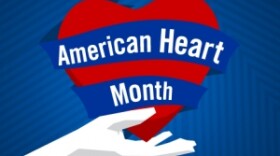Ten fingers, ten toes and one perfect heart.
This is Congenital Heart Defect Awareness Week.
Congenital heart defects are heart conditions that a baby is born with. These conditions can affect the heart’s shape, how it works, or both. According to the March of Dimes, congenital heart defects are the most common types of birth defects. Nearly 1 in 100 babies is born with a heart defect in the United States each year. About 4,800 babies each year are born with Critical Congenital Heart Disease. CCHD is a group of the seven most critical congenital heart defects. Babies with CCHD need treatment within the first few hours, days or months of life. As medical care and treatment have advanced, babies with a CHD are living longer and healthier lives.
Because time is of the essence in getting effective treatment, pregnant women should have a fetal echo, a special ultrasound of the baby’s heart, done if an abnormal fetal heart rhythm is detected during the routine 20 week ultrasound. As of January 1, 2014, all babies born in Missouri are given a test for CCHD as part of the standard newborn screening process. However, this screening is not perfect and parents should continue to watch for signs of CCHD in their newborns, such as:
Fast breathing
Trouble breathing while feeding
Gray or blue skin coloring
Slow weight gain
Swollen belly, legs or puffiness around the eyes
Sweating, especially while feeding
If any of these signs or symptoms are noted, parents should call their health provider right away.
Websites:
http://www.cdc.gov/ncbddd/heartdefects/index.html
http://www.heart.org/HEARTORG/Conditions/CongenitalHeartDefects/CongenitalHeartDefectsToolsResources/Congenital-Heart-Defects-Tools-and-Resources_UCM_002031_Article.jsp#.Vm3tJEorIdU
http://health.mo.gov/living/families/genetics/birthdefects/cchd.php





